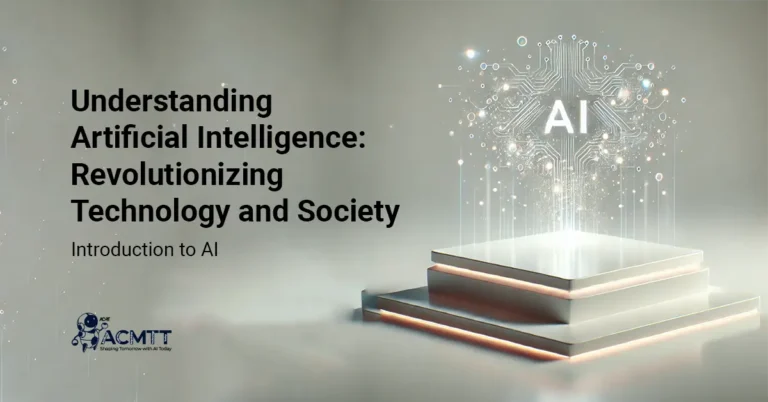Understanding Artificial Intelligence Artificial Intelligence (AI) is transforming industries and societies at an unprecedented rate. AI refers to the development of computer systems capable of performing tasks that typically require human intelligence. These tasks include visual perception, speech recognition, decision-making, language translation, and more. AI systems learn and adapt over time, making them increasingly efficient […]
Introduction to AI - Artificial Cognition and Machine Technology Today
Introduction to AI provides a comprehensive overview of artificial intelligence, its foundational concepts, and its transformative impact on various aspects of modern life. AI refers to the capability of machines to perform tasks that typically require human intelligence, such as understanding natural language, recognizing patterns, learning from experience, and making decisions. This introduction covers key components of AI, including machine learning, where algorithms learn from data; deep learning, which utilizes neural networks to model complex patterns; and natural language processing, enabling machines to interact with human language. The topic also explores AI applications in diverse fields like healthcare, finance, transportation, and entertainment, highlighting its potential to enhance efficiency, innovation, and decision-making. Additionally, it addresses the ethical implications and challenges associated with AI, including bias, privacy concerns, and the future of work. Understanding these fundamental aspects is essential for grasping the significance of AI in shaping our world.
